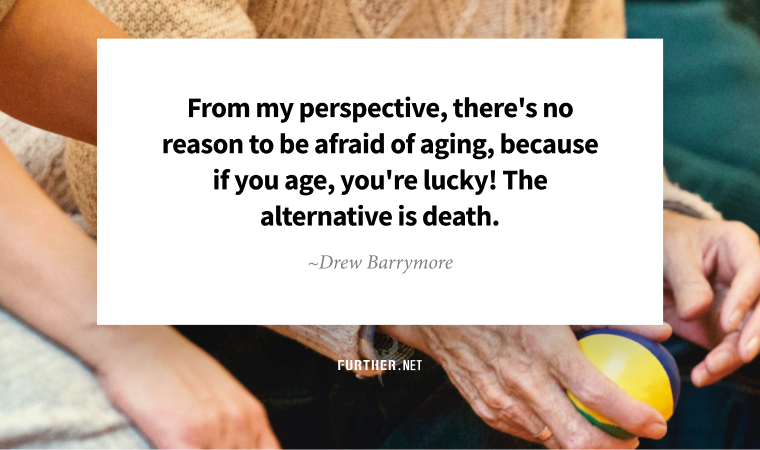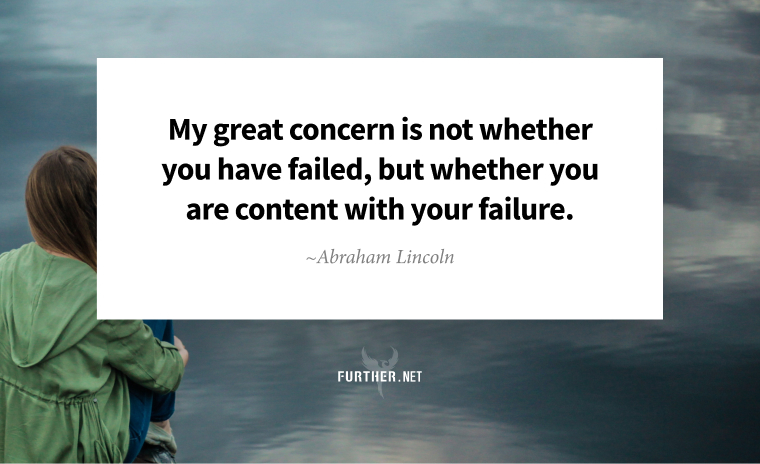Is the Word "Aging" Part of the Problem? 
What you believe about getting older is a powerful predictor of how well you do it. The more positively you think about getting older, the better your life actually is as an older adult. Plus, people with the most positive beliefs live over seven years longer than those with the most negative mindsets. This longevity and healthspan boost is the real deal, with the lower prevalence of heart failure, strokes, and heart attacks alone being significant. And now we're learning more about the cognitive benefits: According to a new study by the Yale School of Public Health, older adults with mild cognitive impairment (MCI) were 30% more likely to regain normal cognition if they had absorbed positive views on aging from their culture, compared with those who had taken in negative beliefs. Note the use of the word "culture" there. We're supposed to have a positive outlook on getting older, but we live in a culture that is downright negative about older people. I get to think about this a lot, given I'm an advocate for older adults here at Further and in my new project Longevity Gains. And when you start looking at our circumstances closely, even the words used to describe us indicate we're somehow this weird "other" compared with younger people. It starts with the word "aging" itself. Specifically, aging does not mean "old" or older. From the moment you're born to the day you die, you're aging. And until we get that promised age-reversal treatment, you should be happily aging since that means you're still alive. So when I hear things like "aging in place," I find it a bit strange. The phrase means choosing to live in your existing home with family, friends, and neighbors instead of moving to a retirement community or some form of long-term residential care. So shouldn't it be "living in place?" The context seems to suggest that when you're older you're done living; you just have the problem of "aging" that needs to be dealt with. Or how about "healthy aging?" Technically that's just being healthy, since everyone is aging all the time. You get the idea. In a huge slice of irony pie, it was the empowerment of the young Baby Boomer generation after WWII that began with messages and language portraying older people as uncool, out of touch, and even the enemy of those who mattered — the young. Now Boomers are those older adults, and are struggling for respect and attention within a culture that doesn't value them the same way despite their enormous cohort size and wealth. These semantic concerns may seem trivial compared with the much harsher aspects of ageism that we can face. But the language we use and are subjected to is worth considering when you're trying to promote favorable change for older people. In other words, if the entire construct of "aging" has a negative slant — even if unintentional — it means we may have to tear down the whole house and start building fresh to get the most of our later years. You continuing to kick ass as you continue the lifelong process of aging is a really good start. Further reading: From Baby Boom to Longevity Boom (Longevity Gains) Keep going- Brian Clark P.S. New to Further? Join us here. Put It In Reverse Here's yet another longevity breakthrough that shows aging can be reversed at the cellular level, this time over multiple species. It's all going to come down to how quickly successful human trials can validate a treatment. Calling it now, it will happen. This Longevity Study Across 5 Species Found a New Pathway to Reverse Aging (Singularity Hub) Older People Stress Less In addition to getting happier after 50 thanks to the upside of the U-shaped curve, older people tend to handle stress better than younger people as well. We have the experience to know not to sweat the small stuff, and the wisdom to know it's all ultimately small stuff. How Our Relationship to Stress Changes Over a Lifetime (Greater Good) Gray Gone? Here's a headline with an example of what I'm talking about above — all scalps are aging, but not all hair is gray. The question is, do you hate your gray hair and want it gone, or are you okay with it? I say do whatever makes you happier. Is Gray Hair Reversible? A New Study Digs Into the Root Cause of Aging Scalps (NPR) Living Out of Place The opposite of so-called "aging in place" is going to live exclusively with other older adults in a retirement community. No thanks for me, but maybe you think differently? Niche Retirement Communities Are Growing — Are They Right for You? (Kiplinger) How to Get Better at Failing 
By Trudi Roth It's not like we don't know we're supposed to celebrate failure — in our age of relentless positivity and reality-blurring euphemisms, everything bad is good again. As George Carlin once said: People have been bullshitted by the system into believing that if you change the name of the condition, somehow you'll change the condition. So, naturally, when SpaceX's multi-billion dollar rocket experienced a "rapid unscheduled disassembly," the team popped bottles. Meanwhile, all of Gen X other than Elon had Challenger PTSD flashbacks. This example illustrates how hellbent we are that today's mistakes become rocket fuel for tomorrow's innovation. But, in reality, "failing forward" is an uphill battle most of us lose. So, how can you regain your balance when you hit the skids? Hint: it's all about de-greasing the slippery slope of shame and disappointment. The Wind in Your Fails Recent research illuminates common ways failure can derail you. First up: the "sour-grapes effect," identified by Norwegian psychologist Hallgeir Sjåstad. In his experiments, he observed that once his subjects received negative feedback, they typically discounted how happy and proud a future success would make them. So they quit early vs. trying again — something, Sjåstad noted, we do all the time without noticing. The easiest way out is to deny or explain away the external signal, so we can reduce the inconsistency and preserve a positive sense of self. Similarly, the "ostrich effect," where people avoid discomfort by overlooking negative information, is another common way to prevent failure's sting. In the "Facing Failure Game" experiment, researchers Lauren Eskreis-Winkler and Ayelet Fishbach found that given questions with only one right or wrong answer, people successfully remembered their correct answers when asked again later but failed to learn from their mistakes. Sticking your head in the sand is one way to cope, but it doesn't mean you fail any better. Make Failure an Option In that experiment was a clue to getting better at messing up. When observing others' mistakes, the researchers found people could infer the correct response and remember it later. This points to a critical factor in handling setbacks: it's easier to move on if it's not on you. Eskreis-Winkler and Fishback then teamed up with grit expert Angela Duckworth to test having people give others advice based on their missteps. By forcing people to use their experiences with failure to help others, they found an increase in self-confidence — and a greater willingness to keep going. Another option is "self-distancing," where you use the third person to reflect on mistakes. Instead of asking, "Why did I fail?" I might ask, "Why did David fail?" for example. The point is to stop taking failure personally and start using it for personal growth. Now that's a winning strategy. The smart way to learn from failure (BBC) further: flashback  Duran Duran - New Moon On Monday
Seven and the Ragged Tiger, 1983 Now that Duran Duran is safely in the Rock Hall of Fame, I'll reveal that even though the band's second album Rio is a masterpiece, it's New Moon On Monday off their third album that's my favorite song. And yes, that's despite the annoying French guy at the beginning of the video (I thought mimes didn't speak?). (YouTube)
further: sharing  Share Further with Friends and Get Access to Well + Wealthy! Share Further with friends and earn three months of access to our membership community: Well + Wealthy with only five referrals. Simply give them your unique referral link or use one of the sharing icons below. You have referred 0 people so far. | Thank you for sharing Further! | 











No comments:
Post a Comment